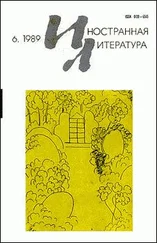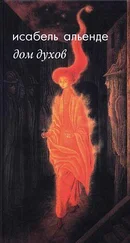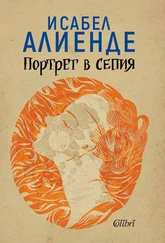He added that soon after he arrived, he was offered a job at the same copper corporation where he had first worked after graduating. Nobody asked him about his political ideas; the only things that counted were his U.S. doctorate and his professional experience. “I’m going to stay here. I’m Chilean.” This was the clincher, because despite everything they had been through, they too were Chilean. Besides, there was no way they were going to be apart from their son.
In less than three months, the Dalmaus sold their possessions and said goodbye to their Venezuelan friends and colleagues. Valentin Sanchez suggested that Roser go back in triumph, head held high, as she had never been on a blacklist or in the sights of the security forces as her husband had. She was to return with the entire Ancient Music Orchestra and give a series of free concerts in parks, churches, and high schools. When she wanted to know how all this would be financed, he told her it was a gift from the people of Venezuela to the people of Chile. The Venezuelan budget for culture was generous, and in Chile they wouldn’t dare refuse—that would cause an international scandal.
The return was harder for Victor than for Roser. He left his post at the Caracas hospital with its economic security for the uncertainty of a place where exiles were regarded with suspicion. Many on the Left blamed them for leaving rather than staying to fight the regime from inside, while the right wing labeled them Marxists and terrorists, claiming there must have been some reason for them to be expelled.
When he turned up at the San Juan de Dios hospital where he had worked for almost thirty years, he was received with hugs and even tears by nurses and some doctors from before, who remembered him and had escaped the purges of the first years when hundreds of medical personnel with progressive ideas were dismissed, arrested, or killed. The hospital director, a military man, greeted him in person and invited him into his office.
“I know you saved the life of Commandant Osorio. That was a praiseworthy act for someone in your situation,” he said.
“You mean as a prisoner in a concentration camp? I’m a doctor, I attend whoever needs me, whatever the circumstances. How is the commandant?”
“Long since retired, but well.”
“I worked many years in this hospital and I’d like to return,” said Victor.
“I understand, but you have to consider your age…”
“I’m not seventy yet. Until two weeks ago, I was in charge of the cardiology department at the Vargas hospital in Caracas.”
“Unfortunately, with your record as a political prisoner and an exile, it’s impossible to employ you in any public hospital. Officially, you’re suspended until further notice.”
“Does that mean I won’t be able to work in Chile?”
“Believe me, I’m truly sorry. It’s not my decision. I suggest you apply at a private clinic,” the director said by way of farewell, giving him a firm handshake.
The military government had decided public services should be in private hands. Health was not a right, but a consumer good to be bought and sold. In those years when everything that could be privatized had been, from electricity to airlines, a plethora of private clinics had sprung up, with state-of-the-art buildings and facilities for those who could afford them. After years of absence, Victor’s professional prestige was still high, and he immediately secured a position in Santiago’s most exclusive clinic, at a salary far higher than the one he would have accepted in a public hospital.
On one of his frequent visits to Chile, Felipe del Solar went to visit Victor. It had been a long time since they had last seen each other, and though they had never been close friends or had a great deal in common, they hugged each other with real affection.
“I heard you had returned, Victor. I’m really pleased. This country needs good people like you to come back and work.”
“Are you back in Chile as well?” asked Victor.
“Nobody needs me here. I live in London: can’t you tell?”
“Yes, I can. You look like an English lord.”
“I have to come quite often for family reasons, even though I can’t stand any of them except for Juana Nancucheo, who brought me up. But you can’t choose your family.”
They sat on a bench in the garden opposite a modern fountain that spouted jets of water like a whale, and caught up with the news from their respective families. Felipe spoke of Ofelia, shut away in the countryside, working on paintings nobody bought. Laura del Solar had senile dementia and was in a wheelchair, while Felipe’s sisters had turned into unbearable snobs.
“My brothers-in-law have made fortunes in recent years, Victor. My father looked down on them: he said my sisters had married well-dressed idiots. If he could see his sons-in-law now, he’d have to eat his words,” Felipe added.
“This is a paradise for business and businessmen,” said Victor.
“There’s nothing wrong with making money if the system and laws permit it. But you, Victor, how are you?”
“Trying to adapt and understand what’s happened here. Chile is unrecognizable.”
“You have to admit it’s much better. The military putsch saved the country from Allende’s chaos and a Marxist dictatorship.”
“And to prevent that imagined left-wing dictatorship, an implacable right-wing one has been imposed, Felipe.”
“Listen, Victor, keep those views to yourself. They don’t go down well here. You can’t deny we’re much better off, we have a prosperous country.”
“But at a very high social cost. You live abroad, you know about the atrocities that are never mentioned here.”
“Don’t start with that refrain about human rights. That’s such a bore, Victor,” Felipe interrupted him. “They are excesses committed by a few stupid military men. Nobody can condemn the governing junta, much less President Pinochet, for those exceptions to the rule. The important thing is that the country is calm and we have an impeccable economy. We were always a country of layabouts, but now people have to work and make an effort. The free market system favors competition and promotes wealth.”
“This isn’t a free market, because the labor force is repressed, with their most basic human rights suspended. Do you think this system could be implanted in a democracy?”
“This is an authoritarian, protected democracy.”
“You’ve changed a lot, Felipe.”
“What makes you say that?”
“I remembered you as more open, iconoclastic, quite cynical and critical. Against everything and everyone, sarcastic and brilliant.”
“I still am in some respects, Victor. But as you grow older you have to take up a position. I’ve always been a monarchist,” Felipe said with a smile. “At any rate, my friend, be careful with your opinions.”
“I am careful, Felipe, but not with my friends.”
—
TO ALLEVIATE THE EMBARRASSMENT he felt at treating medicine as a commodity, Victor worked as a volunteer in a makeshift consulting room in one of the Santiago shantytowns. They had sprung up with the migration of workers from the countryside and the saltpeter industry half a century earlier, and had since multiplied. About six thousand people lived crammed into the one where Victor worked. There he could assess the repression, the discontent, and the courage of the poorest people. His patients lived in shacks made of cardboard and wooden planks with beaten earth floors, and had no running water, electricity, or latrines. They had to endure summer dust and winter mud surrounded by garbage, packs of stray dogs, rats, and flies. Most of them had no proper work, earning a minimum for survival in desperate jobs such as scavenging in the garbage heaps for plastic, glass, and paper to sell, or doing heavy manual work for the day in anything that came along, trafficking or stealing. The government had plans to eradicate the problem of the shanties, but the solutions kept being delayed, and in the meantime they raised walls to hide this wretched spectacle that made the city look ugly.
Читать дальше











